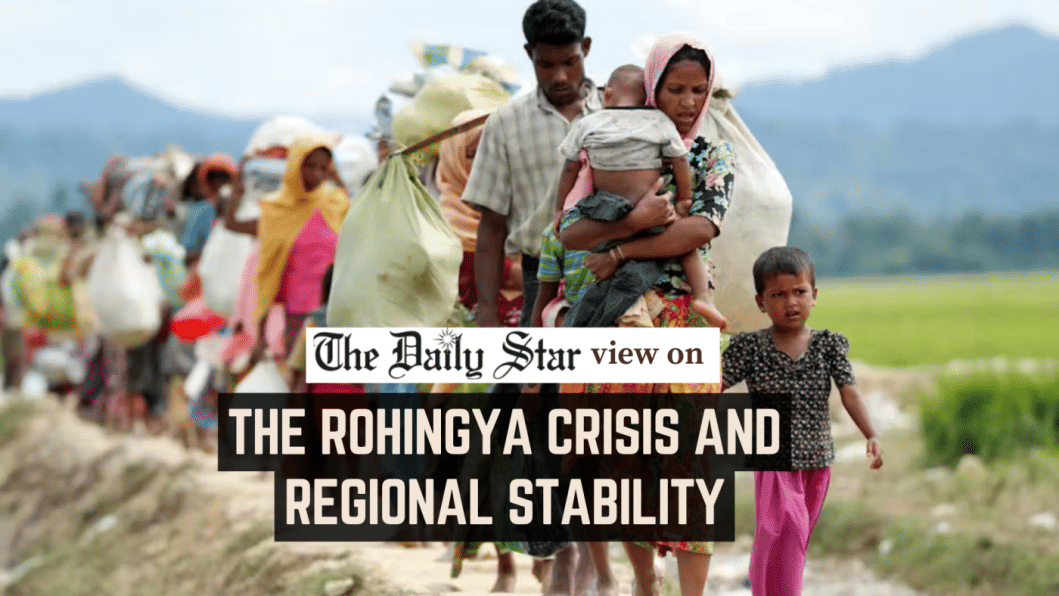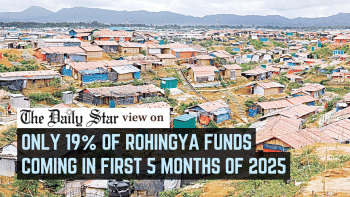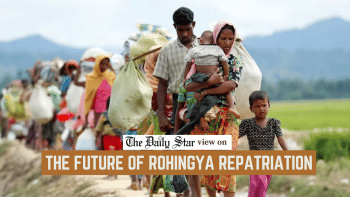Solution to Rohingya crisis urgently needed

We are deeply concerned about the increasingly complex Rohingya situation in the country, with no progress in the repatriation process and the persistent crisis in Myanmar. Global funding cuts have made the situation particularly alarming, depriving Rohingya refugees of their most basic necessities. Foreign Affairs Adviser Touhid Hossain has therefore rightly warned the UN that, if a sustainable solution is not urgently pursued, the Rohingya crisis could soon escalate into a serious threat to regional security. Highlighting that prolonged crises often stem from systemic marginalisation, the adviser rightly urged renewed international attention and action to facilitate the safe and dignified return of the Rohingya people.
Bangladesh has been hosting 1.2 million Rohingya people for over eight years now, despite the fact that this humanitarian act has placed immense socio-economic and environmental pressures on the country. Unfortunately, despite several attempts, not a single Rohingya sheltered in Bangladesh has been repatriated to Myanmar. In fact, the situation has worsened, with around 150,000 Rohingya people arriving in Bangladesh in recent months, having fled escalating clashes between the Arakan Army and Myanmar's ruling military junta. Bangladesh has already been struggling to provide shelter and basic services to the existing Rohingyas. What will happen if 50,000 more arrive by the end of the year, as a WFP report has projected?
The recent funding cuts have made it increasingly difficult for Bangladesh to provide Rohingya refugees with their basic necessities. Reportedly, only 19 percent of the funds required for Rohingya refugees this year have been secured, even though five months of the year have already passed—out of the $934 million required, only $180 million has been received so far. This funding gap has already disrupted numerous essential services, including health, education, family planning and nutrition. Aid agencies warn that the situation could deteriorate further without immediate financial support. Access to healthcare and education in the refugee camps has already sharply declined. For instance, the number of patients seeking medical care fell from 372,000 in February to 205,000 in April. Meanwhile, with the closure of learning centres, the education of 230,000 children—and the livelihoods of hundreds of local teachers—are in jeopardy. Rohingya children's safety is also at greater risk.
Clearly, the situation is critical and may lead to an increase in criminal activities in and around the camps. With worsening safety conditions, more refugees may resort to dangerous sea routes. Women and girls will be particularly vulnerable to gender-based violence. We therefore urgently call on the international community to provide much-needed humanitarian aid and to play an active role in finding a sustainable solution to the Rohingya crisis.


 For all latest news, follow The Daily Star's Google News channel.
For all latest news, follow The Daily Star's Google News channel. 









Comments